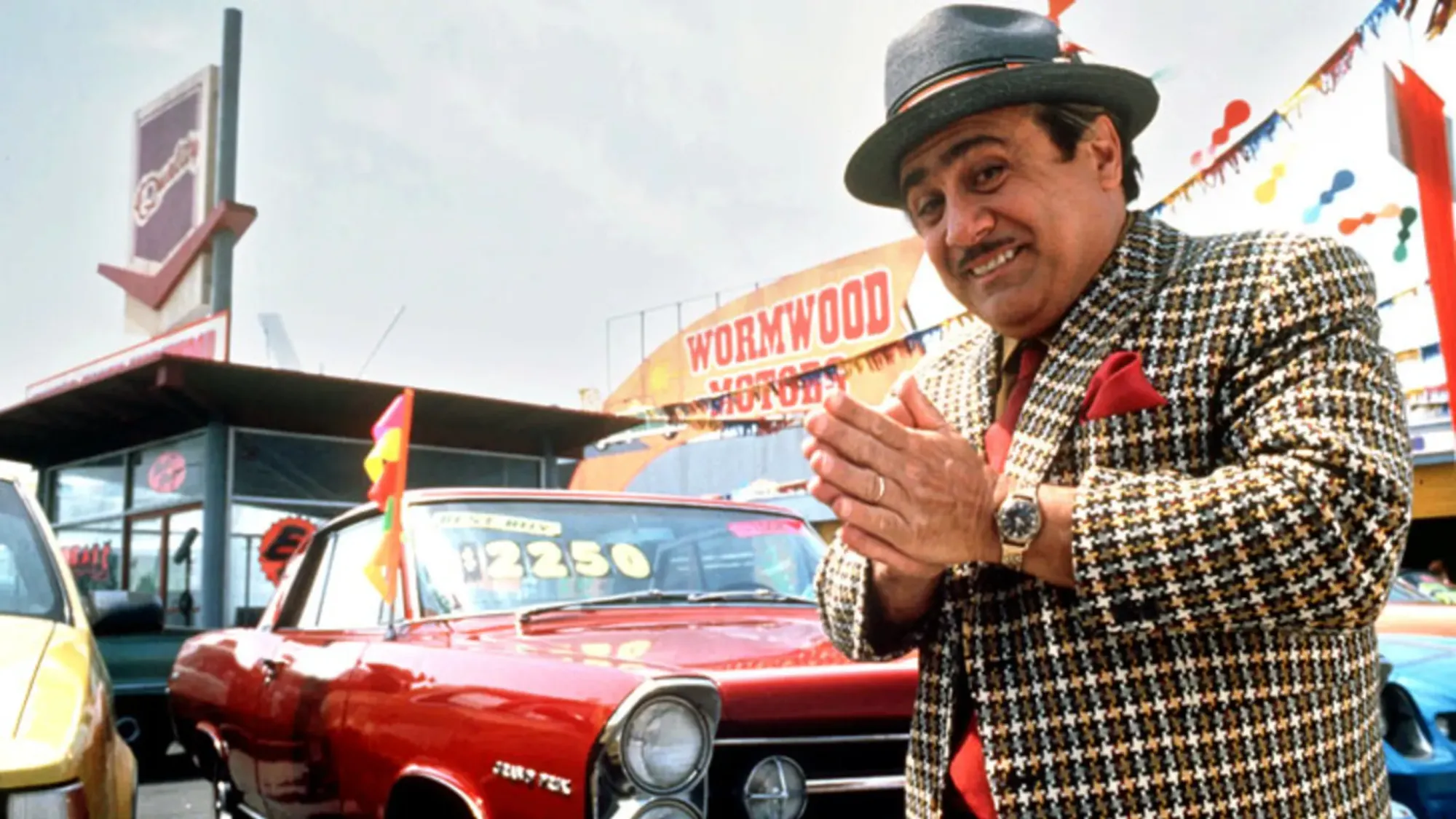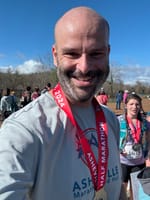I don't have much in terms of financial ambition. I am pretty content with what I have - I objectively know that I have it far better than approximately 99.99% of all humans that have ever lived.
But I've always admired people who work for themselves. Trainers, tutors, small business owners... they all have at least enough confidence in their own abilities to eschew the comforts of a steady paycheck. When I've asked my friends who have gone into business for themselves most of the time the reason has something to do with a belief that this is the best way for them to move forward and capitalize on their talents. I don't think I've ever had that level of confidence; neither in my talents nor in my ability to successfully sell others on the idea that that I can deliver excellence and am worth the risk of hiring.
Chris Guillebeau suggests that you don't need to have "brass balls" to suceed in making money outside of a secure job. You just need to be willing to spend consistent time outside of work to take an acorn of an idea and allow it to grow into something valuable to you that is independent of the main way you earn income.
The gist
Chris's main message is that a side hustle needs to be profitable, persuasive and feasible
- Feasible: can you do the work and make progress with less than one hour a day's worth of work? Since this isn't meant to be a main job at this point it shouldn't take up more than an hour's daily time.
- Profitable: can your idea make money or will it be a net loss. If it's a net loss then it's a hobby. My sketching isn't a side hustle because I am not good enough at this point to earn anything for my drawing. But if I work at it long enough then it could feasibly be profitable if I market myself to sell portraits.
- Persuasive: can you "sell" people on the idea of giving you money for whatever it is that you are doing?
The last part is probably the thing that creates the greatest friction for people. I think most people have a discomfort with the idea of trying to convince people to do something. It feels coercive. That's why we almost automatically distrust anyone whose job it is to sell things.

Chris Guillebeau argues, convincingly in my opinion, that the process of developing something above and beyond your paycheck doesn't have to feel slimy. On the contrary, the process of developing independent work is both noble and positively transformative.
The negatives of hustle culture and inspiration porn
The YouTube videos extolling the hustle life can be rather insipid. They can also be rather addicting. It is easy to lose 20-30 minutes of your day watching movie speeches set to inspirational music. I think part of why these videos get millions of views is that they trick your brain into getting the dopamine hit that comes from accomplishment. Watching a Rocky training montage gets you pumped!
These videos are essentially the Rocky Training montages. They get you fired up to do something... for a couple of minutes. I would have six pack abs if I followed through on every time I got inspired by one of these videos.
And that's why the collective ethos of hustle culture is essentially a bunch of motivation porn - it makes you feel good in the moment but nothing really ever happens.
These kinds of videos are essentially dopamine producers. As I understand it, they give you the same neurochemical hit that you get when you successfully accomplish something. Someone basically gets a bit of a runner's high from watching something physically inspirational without the effort and the negatives of doing the actual work.
Seeking out that dopamine hit is why the self help industry is a multi-billion dollar business. If they were successful they would put themselves out of a job. But because people are willing to chase the high they get from these kinds of "edu-tainment" books they don't really care if they are no better than they were after buying and reading the 5th book by Tony Robbins.
Why this idea is slightly different from your typical self help book
There's a reason that salespeople tend to be incredibly charismatic; they are trained to bypass the part of the brain that is cautious and tells you to say "no" to something. To get to the goal of making the sale they have to bypass the part of the brain that puts the breaks on action, at least temporarily. The ABCs of sales is super clear. There are no questions because there is no room for doubt or gray zones in the kind of thinking that you need to do in order to convince people to buy what you are selling.
The reason there is no doubt in this kind of speaking or motivating is because these kinds of speeches bypass the neocortex, thinking and logical part of your brain, and fire up the temporal lobe, the emotional part of the brain.
Chris Guillebeau doesn't do that. His writing is not focused on attaining the specific goal. I think its because he is not particularly focused on making a sale. He is interested in sharing a point of view to anyone who is willing to listen. He isn't trying to meet a sales quota. Yes he is trying to make money and he doesn't have to care whether or not anyone who buys his books actually succeeds but fundamentally his book is about sharing ideas of how to live life as a journey as opposed to how to live a life of conquering or crushing certain goals.
Chris isn't promising anyone will become a multi-millionaire. He isn't showing off Lamborghini's or Rolex's, he is simply making a case for why people should attempt to have a side job of some kind.
And there are plenty of people that are well served by that kind of motivational fuel. This isn't me dissing anyone who likes to get amped up. I do it too; I love listening to heavy metal while I'm in the gym precisely because it helps motivate me to accept a challenge I might not be normally willing to undertake.
But I don't find "tough talk from a hard ass" to be particularly motivating. I find it more motivating to think about the benefits of the journey than the benefits of "winning". Learning new skills, meeting new people, opening up additional opportunities all are net positives even if your side job doesn't pan out or make any money and at this point in my life these softer concepts motivate me far more than any kind of rousing speech.
In some ways this blog is me dipping my toe into this idea of a side hustle. I am not interested in directly selling anything to people but the idea of honing my writing as a means of attracting an audience is something that I think is worth my time and effort.
In that regard I disagree with Guillebeau when he says its not a hustle if you aren't making any money. I think the money is a good yardstick to measure growth but if I don't make a dime from blogging I will still consider this to be a personal success. My sketching, for example, isn't going to make me any money anytime soon. But I know that if I continue to hone the skill that at some point I will try and see if I can go on some freelance site and get paid for drawing. That is a bonus for me but it is more of a sense of validation - I have improved this skill to the point where I can choose to get compensation for doing it if I choose.
I'd say my biggest criticism of this book is the idea that someone should be able to get their first paycheck in a side hustle within one month. I get the idea - don't try and do something as a side hustle that doesn't actually pay you money - but the "hurry up" culture that we have is not positive. I would rather people develop a greater sense of patience and be willing to learn for 6 months to a year before getting money.
Who should read side hustle
Obviously anyone who has an entrepreneurial spirit should read this. I also think anyone in their 20s, with little to risk and lots of free time, should read this and embrace the idea of growing something outside of a steady paycheck.
Anyone who is seeking a greater self reliance should read this. I know that my job as a high school science teacher is pretty secure but I don't particularly like knowing that something unexpected could rock my world. The idea of starting something outside of the secure income is appealing in that regard.
Fundamentally if you want to step out of your comfort zone I can't think of any other endeavor that would help force your personal growth more than attempting to engage in some kind of a side hustle.


Member discussion: